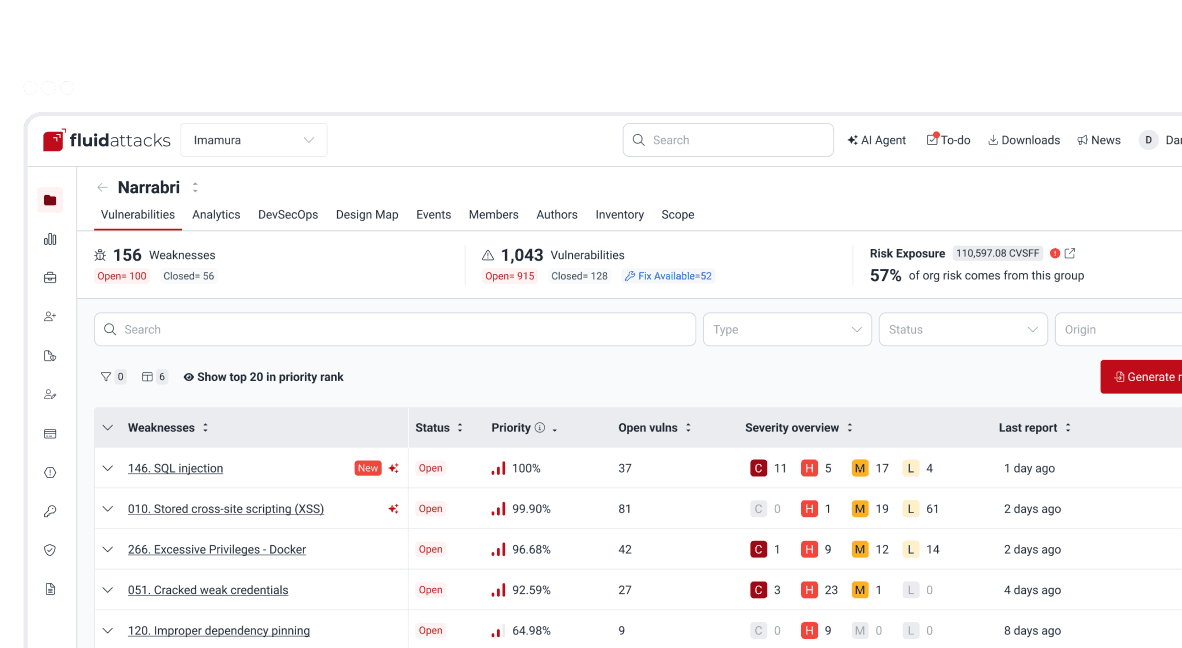Interview
Lessons from competing in the ICC: An interview with members of our hacking team


Content writer and editor
Updated
Aug 18, 2023
6 min
The ICC (International Cybersecurity Challenge) is an esports competition organized by the ENISA (European Union Agency for Cybersecurity). Its first edition was in the summer of 2022 in Athens. This year it was held earlier this month in San Diego. The latter edition gathered competitors from 86 nations, aged 18 to 25, each in either of 7 teams, each, in turn, representing one world region (Africa, Asia, Canada, Europe, USA, Latin America and Oceania).
On the first day, there was a Jeopardy-style CTF with categories such as cryptography, pwning (binary exploitation), web and forensic. The second day began with an Attack-Defense-style CTF in which competitors had to defend the servers and machines assigned to them and attack those of the other teams. (Read the descriptions of these kinds of CTFs in our post about our selection of the top 10 CTFs.) The challenge closed with a King of the Hill (aka KotH) competition, in which each team must work "to attack, control, and defend as many computers on a target network as they can." The winner of the ICC this and last year was Team Europe.
We interviewed Óscar Uribe, Alejandro Pérez and Said Cortes. They passed the application challenges to earn their spot on the Cyber Team Latin America & Caribbean and competed in the ICC. Said participated in 2022, and Óscar and Alejandro participated in 2023. We asked them about the toughest part of the challenge, what preparation anyone interested in participating should consider, and their recommendations to the Latin American team, among other things.
What was the preparation you had before the ICC?
Óscar: We received workshops and lectures before flying to meet our teammates. But the preparation also consisted of a great deal of independent work. Each one of us had to seek to learn more about different exploitation techniques. Then, when we got to San Diego, we organized the responsibilities of each player and laid out strategies.
Alejandro: Mainly we made a table with the different categories that we expected to face in the ICC where each participant would put their skill level. Based on that, we defined the specific areas where each of the team members would work.
Said: The preparation we had last year were various CTFs and participation in events by invite on Hack The Box. But I consider that there is room for improvement for the amount of preparation provided by the staff.
What do you think was the toughest part of the challenge?
Óscar: All the sections had their own level of difficulty, but I felt we needed more practice for the reversing and pwning categories. We also fell a bit short with our strategies and analysis in the Attack-Defense-style CTF.
Alejandro: Personally, I believe that making our strategy work out was the toughest part, since we did not know each other personally until a few days before the challenge and so had a short time to extend comments for improvement and indications to apply in the competition.
Said: I think that the reversing and pwning categories are somewhat complicated areas to understand, and the competition is based a lot on them.
Do you find that the vulnerabilities encountered during the competition resemble those you find in the systems you evaluate on a day-to-day basis?
Óscar: No. The CTFs seek to add a bit of complexity to the challenges so that you have to use more ingenious solutions or spend more time figuring things out.
Alejandro: I think yes. Each company that creates the machines or challenges for these games tries to do it in their own way, but you always find similarities to what you find in traditional pentests.
Said: Not at all. At least the Jeopardy CTFs, they are designed to be a puzzle and the vulnerabilities will be more elaborate than those found by someone working daily in the area. In the Attack-Defense section, though, it is possible to find more similarities to what you see in a day's work as a red team and blue team.
What do you think are some non-technical skills required by the ICC?
Óscar: Communication and teamwork.
Alejandro: Teamwork and communication. Just like in professional sports teams, it is necessary to express ourselves and help each other in quick and effective ways.
Said: I think that soft skills contribute a lot to successful networking outside the challenge. During the challenge, I think it's the technical skills that play the biggest part.
Which skills and knowledge are you motivated to strengthen after this competition?
Óscar: I would like to improve my knowledge in reversing and pwning. They are very useful to succeed in Attack-Defense, along with the knowledge in the web and cryptography categories.
Alejandro: I am motivated to learn more about binary exploitation. I feel like it is a very interesting area and a very useful one when exploring careers in cybersecurity.
Said: After the competition I have strengthened my knowledge in reversing. I've also worked on my skills for Attack-Defense. Since I had been dedicated 100% to offensive security, I had to start practicing defensive security. So, what I have studied are some techniques and tools that help identify attacks on systems. Also, I've practiced on platforms like HTB Academy and HTB Battlegrounds to learn new things.
What do you think are the skills and knowledge a person must possess to be a part of the Latin American team?
Óscar: First, I would say they should have a passion for cybersecurity and challenges. They should be persistent. Now technically, they should be skilled in some of the categories of the CTFs. It's not necessary to be good at all of them. In fact, the idea of there being several people on the team is that they are good at different things. Ideally, each person should be a specialist. To practice, I recommend heading to CTFtime, where there are CTFs almost always and of all skill levels, from beginner to advanced.
Alejandro: They should be someone who specializes in the categories of the CTFs, or someone who has extensive knowledge of penetration testing. Now, you won't always know the solution to a problem, but having a strong base knowledge is important to learn along the way. Everyone interested could benefit from training on Hack The Box, TryHackMe and PwnTillDawn.
Said: I think people looking to compete nationally and internationally should practice in CTF events that one can find on the CTFtime platform, identify which area they like the most and focus on that area. It also helps a lot to read other people's writeups to know how they solved a particular challenge and make community with people who know more than you.
This and last year, the Latin American team got sixth place. How could the team improve its performance for the next competition?
Óscar: I think it may improve by modifying the selection process so that it seeks people who are specialists in each topic of the ICC. Once the team is formed, the members can start training much earlier and working many more times together than in the previous challenges.
Alejandro: The team may benefit from doing as Team Europe, starting the selection process one year before the event and practicing as a team from that time on.
Said: Based on what I experienced last year and what I have seen this year, I think that the team's performance may be improved by a better selection process and more effective actions by the coaching staff. The former should focus on recruiting a number of skilled persons per category; for example, people whose strength is reversing, others who are better at pwning, and so on. And the coaching staff should hold a bootcamp to strengthen the team members' skills and motivate training from several months before the challenge. Of course, every selected participant should be self-motivated and need little incentive to work on strengthening their skills. Finally, I think that as the ICC starts to gain more coverage, more people will know about it, and so there are more chances of reuniting a more diverse set of talents.
Alejandro, because of your age, you will still be eligible for next year's ICC. Would you like to participate in it?
Alejandro: Yes, I'll be waiting for the new call and apply to earn my place again in the challenge.
We are grateful to our hacking team members for sharing their experience with us. We hope that you find their recommendations useful and are motivated to take part in next year's ICC. Find the contact information of the Cyber Team Latin America & Caribbean on their website. Or find the team that interests you on the International Cybersecurity Championship and Conference (IC3) website.
Get started with Fluid Attacks' PTaaS right now
Other posts



















